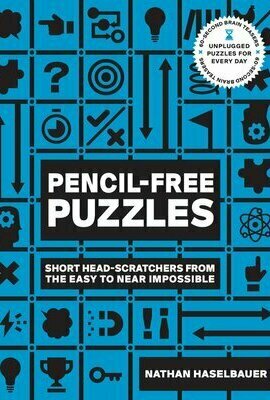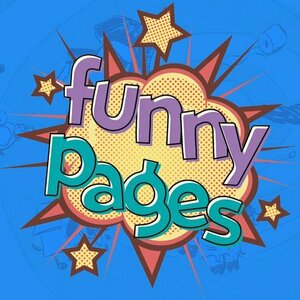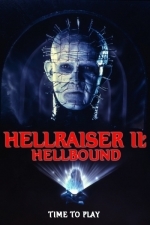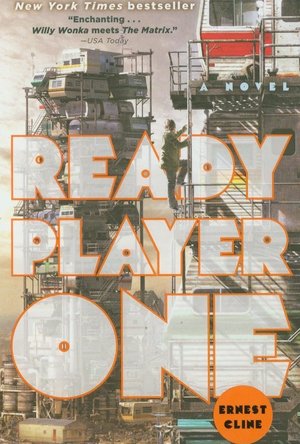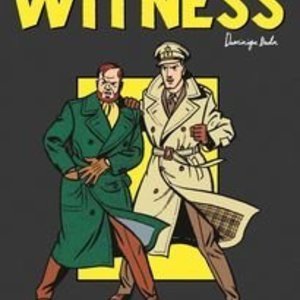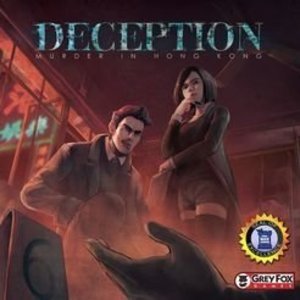Search
Search results
I was provided with a complimentary copy of this book so I could give an honest review. The opinions are entirely my own, and any quotes are taken from the ARC and may be different in the final published copy.
I enjoy brain teasers, mysteries, and puzzles. I enjoy the satisfaction you get when figuring something out that made you have to think. Too often, we just Google an answer and do not have to figure it out for ourselves. 60-Second Brain Teasers Pencil-Free Puzzles: Short Head-Scratchers from the Easy to Near Impossible by Nathan Haselbauer makes you think and is not a book to read in one sitting. Your brain would hurt too much if you did.
Haselbauer includes an array of puzzles that involves logic and some thought to figure out the puzzles. Some of them stumped me. None were too easy.
The puzzles varied in difficulty and process to solve them. Some are logic-based; others involve math. Either way, they are a fun way to use your brain and pass the time.
This book is reminiscent of the Dell Pencil Puzzles and Word Games I enjoyed so much while growing up. It would be perfect for a road trip or a family gathering.
Several reviewers suggested it helped their children start using their brains again to get ready for back to school.
It is part of a series of 60-Second Brain Teasers published by Fair Winds Press.
This 200-word review was published on Philomathinphila.com on 9/15/20.
I enjoy brain teasers, mysteries, and puzzles. I enjoy the satisfaction you get when figuring something out that made you have to think. Too often, we just Google an answer and do not have to figure it out for ourselves. 60-Second Brain Teasers Pencil-Free Puzzles: Short Head-Scratchers from the Easy to Near Impossible by Nathan Haselbauer makes you think and is not a book to read in one sitting. Your brain would hurt too much if you did.
Haselbauer includes an array of puzzles that involves logic and some thought to figure out the puzzles. Some of them stumped me. None were too easy.
The puzzles varied in difficulty and process to solve them. Some are logic-based; others involve math. Either way, they are a fun way to use your brain and pass the time.
This book is reminiscent of the Dell Pencil Puzzles and Word Games I enjoyed so much while growing up. It would be perfect for a road trip or a family gathering.
Several reviewers suggested it helped their children start using their brains again to get ready for back to school.
It is part of a series of 60-Second Brain Teasers published by Fair Winds Press.
This 200-word review was published on Philomathinphila.com on 9/15/20.
Purple Phoenix Games (2266 KP) rated Funny Pages: A Comical Puzzle Game in Tabletop Games
May 26, 2021
I have been intellectually burned by Enigma Emporium before. So it was with a bruised ego that I agreed to check out their next game, Funny Pages. Now, I don’t fancy myself a fool, but boy did their previous offerings knock me down a peg. But what about an innocently-titled game about (and containing) comic book panels? So far I have solved two of the seven provided to me. Here we go again.
Funny Pages is a puzzle game for any number of players and any gaming skill level. In fact, as there are so few rules, this may be a somewhat perfect game (game?) for non-gamers. Read on.
DISCLAIMER: We were provided a prototype copy of the Promo Pack for the purposes of this preview. These are preview copy components, and I do not know for sure if the final components will be any different from these shown. You are invited to back the game through the Kickstarter campaign, or through any retailers stocking it after fulfillment. -T
To setup, open the envelope (or box, if playing the boxed final version) and display the cards. Done. Easy like Sunday morning.
Funny Pages is not a turn-based game, but rather an exercise in visual clue-hunting and some amount of Google-fu. In this Promo Pack, each card represents a day of the week, and some must be on Easy mode, because I was able to solve them pretty quickly. Others, I believe, echo the difficulty of the aforementioned Wish You Were Here.
In any case, the goal of this Promo Pack is to match up the puzzle with the correct day of the week. And while that sounds very easy, the puzzles certainly are not. Good luck to all who attempt!
Components. Well, these are large, oversized cards with linen finish and obviously amazing art. I am unable to speak on the final components, but have been assured that the game is 100% ready to go, so if it mimics the provided Promo Pack, these are a great size and feel.
I will be poring over these cards much much more until I absolutely figure every one of them out. I am still a bit away from that goal, but these puzzles are definitely more my speed than what I experienced previously. Some of the comics are actually funny, even when taken out of context of the game. I like the comic art style (naturally), and having clever puzzles embedded just makes them even more enjoyable.
I must admit that after solving a few of these I am feeling more confident in my ability to solve the others. I just need to take more time and think with alternate logic. Is alternate logic a thing? If not, I call dibs on coining the term. I very much enjoy these, and I think it is partly due to the fact that they look great and all seem to offer a different type of puzzle on each card. If this is something that piques your interest, then I recommend you check out the upcoming Kickstarter campaign to add this little gem to your collection. If nothing else, use it as a distraction for unwanted guests on your coffee table. Challenge them to solve the lot in a time frame and watch them go to town.
PS – Please do not ask me for hints. I may be wrong on some of my solutions.
Funny Pages is a puzzle game for any number of players and any gaming skill level. In fact, as there are so few rules, this may be a somewhat perfect game (game?) for non-gamers. Read on.
DISCLAIMER: We were provided a prototype copy of the Promo Pack for the purposes of this preview. These are preview copy components, and I do not know for sure if the final components will be any different from these shown. You are invited to back the game through the Kickstarter campaign, or through any retailers stocking it after fulfillment. -T
To setup, open the envelope (or box, if playing the boxed final version) and display the cards. Done. Easy like Sunday morning.
Funny Pages is not a turn-based game, but rather an exercise in visual clue-hunting and some amount of Google-fu. In this Promo Pack, each card represents a day of the week, and some must be on Easy mode, because I was able to solve them pretty quickly. Others, I believe, echo the difficulty of the aforementioned Wish You Were Here.
In any case, the goal of this Promo Pack is to match up the puzzle with the correct day of the week. And while that sounds very easy, the puzzles certainly are not. Good luck to all who attempt!
Components. Well, these are large, oversized cards with linen finish and obviously amazing art. I am unable to speak on the final components, but have been assured that the game is 100% ready to go, so if it mimics the provided Promo Pack, these are a great size and feel.
I will be poring over these cards much much more until I absolutely figure every one of them out. I am still a bit away from that goal, but these puzzles are definitely more my speed than what I experienced previously. Some of the comics are actually funny, even when taken out of context of the game. I like the comic art style (naturally), and having clever puzzles embedded just makes them even more enjoyable.
I must admit that after solving a few of these I am feeling more confident in my ability to solve the others. I just need to take more time and think with alternate logic. Is alternate logic a thing? If not, I call dibs on coining the term. I very much enjoy these, and I think it is partly due to the fact that they look great and all seem to offer a different type of puzzle on each card. If this is something that piques your interest, then I recommend you check out the upcoming Kickstarter campaign to add this little gem to your collection. If nothing else, use it as a distraction for unwanted guests on your coffee table. Challenge them to solve the lot in a time frame and watch them go to town.
PS – Please do not ask me for hints. I may be wrong on some of my solutions.
Awix (3310 KP) rated Hellbound: Hellraiser II (1988) in Movies
Jul 30, 2020
Slightly discombobulating horror sequel. Following the events of the first movie Kirsty Cotton unsurprisingly ends up in a loony bin run by brain surgeon and keen puzzle-box fan Dr Channard (Kenneth Cranham tries mightily to bring a touch of Peter Cushing-style class to an underwritten part). As Channard is a lunatic, he resurrects Kirsty's evil stepmother, and because he is clearly either very forgetful or slow off the mark, together they give a puzzle box (which he already had) to a traumatised patient who's good at puzzles (who he likewise already had about the place) and together they begin to explore the realm of the box.
Meanwhile... oh, does it really matter? As you can perhaps begin to discern, the plot of Hellraiser II Makes No Sense Whatsoever (the Cotton house appears to have teleported from London to New York City in the gap between films, and this is only a minor issue), and there is something baffling and miraculous about the fact the film is as coherent and watchable as it is. Then again, it's not actually about logic, plot, or the motivation of the characters, just a succession of grisly, visceral, nightmarish, surreal images. In this respect at least the film is an astonishing success. Doesn't stop the story from being nonsense, though. Manages to be a very bad movie but also a terrific one, frequently at exactly the same time. Like I say, discombobulating.
Meanwhile... oh, does it really matter? As you can perhaps begin to discern, the plot of Hellraiser II Makes No Sense Whatsoever (the Cotton house appears to have teleported from London to New York City in the gap between films, and this is only a minor issue), and there is something baffling and miraculous about the fact the film is as coherent and watchable as it is. Then again, it's not actually about logic, plot, or the motivation of the characters, just a succession of grisly, visceral, nightmarish, surreal images. In this respect at least the film is an astonishing success. Doesn't stop the story from being nonsense, though. Manages to be a very bad movie but also a terrific one, frequently at exactly the same time. Like I say, discombobulating.
Ross (3284 KP) rated Ready Player One in Books
Apr 3, 2018
As a set of 80s references it was great, as a story in its own right it was OK
I am disappointed with myself for not reading this sooner. Not because it was a life-changing read, but because I now look to be jumping on the bandwagon with the film coming out. I had planned to read this about 3 years ago, before I knew there was a film but never quite got round to it.
The book tells the story of an online world people enter to escape the disaster the real world has become, and shows them spending money they don't have on things they don't need (outfits for their avatar etc), but sadly doesn't take this too far (see Black Mirror for more of a doom-laden version of this world) and tracks the progress of the world's egg-hunters ("gunters") looking to solve epic puzzles and hope to win the ownership of this online world after its creator dies and bequeaths it to the victor.
There are a slew of 80s references in the early pages, and these are mostly enjoyable (unless like me you hate things like the breakfast club and haven't seen many of the films referenced) but thereafter the references are almost solely coin-op video games based, with occasional nods to movies and music. For me, you can get more enjoyable 80s references from one of those talking heads shows ("here, do you remember rubix cubes, what were they all about?!").
The solving of the puzzles (a fairly large part of the story) seemed a little clumsy to me, as if all of a sudden people would make a connection several years after working at it and then just bash on and solve it. This was none more present than in the very final puzzle, there was no logic as to why the solution was what it was. I kind of felt like Cline was desperate for the toilet when he was writing it, twitching on the edge of his seat and just quickly finished it off before he soiled himself.
There were a few twists and turns in the book, and they were mostly enjoyable though I felt there were a few missed tricks (the identity of "Aech" for example - I would put money on Cline planning this to be some Artificial Intelligence reincarnation of Halliday, the world's creator but he wussed out if it).
All in all, I enjoyed reading this, the prose flows quite nicely and easily, and the journey is enjoyable enough. I just felt there could have been more effort on the story and less on squeezing 80s references in ad nauseam.
The book tells the story of an online world people enter to escape the disaster the real world has become, and shows them spending money they don't have on things they don't need (outfits for their avatar etc), but sadly doesn't take this too far (see Black Mirror for more of a doom-laden version of this world) and tracks the progress of the world's egg-hunters ("gunters") looking to solve epic puzzles and hope to win the ownership of this online world after its creator dies and bequeaths it to the victor.
There are a slew of 80s references in the early pages, and these are mostly enjoyable (unless like me you hate things like the breakfast club and haven't seen many of the films referenced) but thereafter the references are almost solely coin-op video games based, with occasional nods to movies and music. For me, you can get more enjoyable 80s references from one of those talking heads shows ("here, do you remember rubix cubes, what were they all about?!").
The solving of the puzzles (a fairly large part of the story) seemed a little clumsy to me, as if all of a sudden people would make a connection several years after working at it and then just bash on and solve it. This was none more present than in the very final puzzle, there was no logic as to why the solution was what it was. I kind of felt like Cline was desperate for the toilet when he was writing it, twitching on the edge of his seat and just quickly finished it off before he soiled himself.
There were a few twists and turns in the book, and they were mostly enjoyable though I felt there were a few missed tricks (the identity of "Aech" for example - I would put money on Cline planning this to be some Artificial Intelligence reincarnation of Halliday, the world's creator but he wussed out if it).
All in all, I enjoyed reading this, the prose flows quite nicely and easily, and the journey is enjoyable enough. I just felt there could have been more effort on the story and less on squeezing 80s references in ad nauseam.
Purple Phoenix Games (2266 KP) rated Witness in Tabletop Games
Jun 12, 2019
A classic ‘game’ from my childhood (seriously, we played it all the time) was Telephone. You know the one – someone whispers something to their neighbor, that person whispers it to their neighbor, and so on until it’s made its way around the group. Hilarity ensues when the final person reveals what they heard – usually a far cry from the original message! So when Travis pulled out Witness, a modern twist on Telephone, I knew that all my years of training would finally amount to something!
Witness is a cooperative game of memory and deduction set in the world of the 1940’s comic “Blake and Mortimer.” You and your compatriots are working together to solve mysteries! But there’s a catch – you each only know certain information, and are limited in how you are allowed to disclose it to each other. If you could just say it outright, there’d be no fun! Each player gets a character book filled with cases and information. Everyone reads their information for the chosen case, and then, like in Telephone, and in a certain order, players whisper their information to the player next to them. Play continues until everyone has heard (through the grapevine, of course) all 4 players’ information. After all information has been relayed, players get a chance to write down any notes from what they remember – but only after everything has been said! Players then open the Questions booklet to their specific case and answer three questions about their specific puzzle. Players receive points for correct answers, and as a team, are attempting to achieve the highest score possible!
I think that Witness is such a neat game. It’s a fun mechanic – you’re trying to remember all of your information to accurately pass it on, only to hear more information to add to what you already need to remember, to then pass it on again! It definitely makes for some funny misheard information! Another aspect of Witness that I like is that it goes beyond a regular game of Telephone in the fact that there’s an end goal – you’re trying to piece together all of the information as you hear it second- or even third-hand to correctly answer some questions. There’s more pressure to communicate accurately because you and your team are striving for a compilation of perfect information to help you score the most endgame points. Witness ups the stakes more than your average game of Telephone, and that’s what makes it interesting and engaging for me.
The major downside of Witness is that it is a game for EXACTLY 4 players. You can’t play with 3. You can’t play with 5. It absolutely 100% must be played with 4 players. And sometimes that’s just not possible. We all know those game nights where maybe only 2 or 3 people are available. Or maybe those times when you invite a large number of people over and they all come. In either scenario, Witness is out, and that is a bummer because it is such a neat game. Since the information is divided between 4 books, there’s unfortunately no way to adapt it for other player counts. So you can either play Witness or you can’t – there’s no ‘maybe.’
Overall, I enjoy playing Witness. I think it’s a unique approach to a simple game. Unfortunately, I believe this game is out of print, but if you can get your hands on a copy, or you see it on a friend’s shelf, give it a play! Whispering to your neighbor and solving little logic puzzles never seemed so fun! Purple Phoenix Games gives Witness a mysterious 11 / 18.
https://purplephoenixgames.wordpress.com/2019/04/02/witness-review/
Witness is a cooperative game of memory and deduction set in the world of the 1940’s comic “Blake and Mortimer.” You and your compatriots are working together to solve mysteries! But there’s a catch – you each only know certain information, and are limited in how you are allowed to disclose it to each other. If you could just say it outright, there’d be no fun! Each player gets a character book filled with cases and information. Everyone reads their information for the chosen case, and then, like in Telephone, and in a certain order, players whisper their information to the player next to them. Play continues until everyone has heard (through the grapevine, of course) all 4 players’ information. After all information has been relayed, players get a chance to write down any notes from what they remember – but only after everything has been said! Players then open the Questions booklet to their specific case and answer three questions about their specific puzzle. Players receive points for correct answers, and as a team, are attempting to achieve the highest score possible!
I think that Witness is such a neat game. It’s a fun mechanic – you’re trying to remember all of your information to accurately pass it on, only to hear more information to add to what you already need to remember, to then pass it on again! It definitely makes for some funny misheard information! Another aspect of Witness that I like is that it goes beyond a regular game of Telephone in the fact that there’s an end goal – you’re trying to piece together all of the information as you hear it second- or even third-hand to correctly answer some questions. There’s more pressure to communicate accurately because you and your team are striving for a compilation of perfect information to help you score the most endgame points. Witness ups the stakes more than your average game of Telephone, and that’s what makes it interesting and engaging for me.
The major downside of Witness is that it is a game for EXACTLY 4 players. You can’t play with 3. You can’t play with 5. It absolutely 100% must be played with 4 players. And sometimes that’s just not possible. We all know those game nights where maybe only 2 or 3 people are available. Or maybe those times when you invite a large number of people over and they all come. In either scenario, Witness is out, and that is a bummer because it is such a neat game. Since the information is divided between 4 books, there’s unfortunately no way to adapt it for other player counts. So you can either play Witness or you can’t – there’s no ‘maybe.’
Overall, I enjoy playing Witness. I think it’s a unique approach to a simple game. Unfortunately, I believe this game is out of print, but if you can get your hands on a copy, or you see it on a friend’s shelf, give it a play! Whispering to your neighbor and solving little logic puzzles never seemed so fun! Purple Phoenix Games gives Witness a mysterious 11 / 18.
https://purplephoenixgames.wordpress.com/2019/04/02/witness-review/
Purple Phoenix Games (2266 KP) rated Deception: Murder in Hong Kong in Tabletop Games
Jun 12, 2019
One of the funnest (yeah I know, it’s not a word) parts of board gaming is getting to introduce new people to the hobby! Whether it’s a family gathering or a party with friends, I love breaking out a fun game for any occasion! Some board gamers have an aversion to the ‘party’ games category, but I think you just need to find the right game for the group to have the best experience! One of those games, for me, is Deception: Murder in Hong Kong!
MURDER! As an Investigator, that’s just another day on the job for you. This time feels different, though. Something about this case is off… After the initial evidence is gathered, the team’s Forensic Scientist has disclosed to the team that the killer is one of the Investigators! Everyone is on edge, accusing every other Investigator of being the murderer. Everyone had potential means and motive, and it is up to you to figure it out! As the Forensic Scientist uncovers more evidence, the details of the crime will come to light, and the killer will be revealed. Put your investigative and deductive skills to the test as you try to unmask the killer, or throw the team off your scent if you are the culprit!
DISCLAIMER!! This review is for vanilla Deception: Murder in Hong Kong. We have plans to add in the expansion once one of us purchases it and learns it and teaches it to the rest of us. Should that happen and our review change, we will add that information to this review or to a new review and link to it from here. -T
Deception: Murder in Hong Kong is a game of bluffing, deduction, and hidden identity. All players (except for the Forensic Scientist) have a secret role in the game – Investigator, Witness, Murderer, or Accomplice. The Forensic Scientist knows who the killer is, and how they did it. It is their job to guide the Investigators to the killer by providing clues about the uncovered evidence. The Investigators are trying to interpret the clues and uncover the killer’s identity. The Witness knows who the killer is, but has not yet figured out how they did it. The Murderer and Accomplice are looking to pin the murder on one of the other innocent members of the team! As clues are revealed, each player gets a chance to make a case against the player whom they think is the murderer. You must convince everyone of your logic, or else the killer could get away! In a game where everyone is a suspect, who can you trust? Gather clues, present your case, and put your poker face to the test in this ultimate game of deception! (See what I did there?)
I thoroughly enjoy games of deduction. Anything where you have to think and solve puzzles/riddles/etc. is fun for me. In Deception, it’s a race to see who can find the solution first. Not only do you have to deduce the correct answer from the provided clues, but you also have to put your persuasive skills to the test! Unless you can convince everyone that a specific player is the killer, they might turn their accusations towards someone else, or even worse, towards YOU! You really have to think outside of the box to interpret the Forensic Scientist’s clues, and I like to challenge myself to find the solution in as few turns as possible. The faster I can solve the murder, the smarter I feel. Don’t lie, it makes you feel smart too when you figure it out before anyone else!
The only part of Deception that I don’t really enjoy is the bluffing aspect, which is one of the most integral parts of the game, I know. I am just a horrible liar with a questionable poker face. If we play and I am the Murderer, I am almost always found out. Whenever anyone accuses me, my mind blanks and I cannot think of a single convincing way to get everyone off my scent! That is a personal problem, though, because when I get to be just a regular ol’ Investigator, I have a blast! I can still be accused, but I always feel like I have an easier time getting people off my case if I am actually innocent. I know some people really enjoy being the Murderer because they like the challenge of deceiving the entire team. I am not one of those people though. If I was guaranteed to be just a plain Investigator (or the Forensic Scientist) every time, I would probably pull this game out more!
Deception: Murder in Hong Kong is a ‘party’ game, but with the right group, it can still be a challenging game. A higher player count, in this case, does not necessarily equate to a chaotic game either. So give Deception a try. It’ll be worth it! Purple Phoenix Games gives it a 17 / 24.
https://purplephoenixgames.wordpress.com/2018/12/26/deception-murder-in-hong-kong-review/
MURDER! As an Investigator, that’s just another day on the job for you. This time feels different, though. Something about this case is off… After the initial evidence is gathered, the team’s Forensic Scientist has disclosed to the team that the killer is one of the Investigators! Everyone is on edge, accusing every other Investigator of being the murderer. Everyone had potential means and motive, and it is up to you to figure it out! As the Forensic Scientist uncovers more evidence, the details of the crime will come to light, and the killer will be revealed. Put your investigative and deductive skills to the test as you try to unmask the killer, or throw the team off your scent if you are the culprit!
DISCLAIMER!! This review is for vanilla Deception: Murder in Hong Kong. We have plans to add in the expansion once one of us purchases it and learns it and teaches it to the rest of us. Should that happen and our review change, we will add that information to this review or to a new review and link to it from here. -T
Deception: Murder in Hong Kong is a game of bluffing, deduction, and hidden identity. All players (except for the Forensic Scientist) have a secret role in the game – Investigator, Witness, Murderer, or Accomplice. The Forensic Scientist knows who the killer is, and how they did it. It is their job to guide the Investigators to the killer by providing clues about the uncovered evidence. The Investigators are trying to interpret the clues and uncover the killer’s identity. The Witness knows who the killer is, but has not yet figured out how they did it. The Murderer and Accomplice are looking to pin the murder on one of the other innocent members of the team! As clues are revealed, each player gets a chance to make a case against the player whom they think is the murderer. You must convince everyone of your logic, or else the killer could get away! In a game where everyone is a suspect, who can you trust? Gather clues, present your case, and put your poker face to the test in this ultimate game of deception! (See what I did there?)
I thoroughly enjoy games of deduction. Anything where you have to think and solve puzzles/riddles/etc. is fun for me. In Deception, it’s a race to see who can find the solution first. Not only do you have to deduce the correct answer from the provided clues, but you also have to put your persuasive skills to the test! Unless you can convince everyone that a specific player is the killer, they might turn their accusations towards someone else, or even worse, towards YOU! You really have to think outside of the box to interpret the Forensic Scientist’s clues, and I like to challenge myself to find the solution in as few turns as possible. The faster I can solve the murder, the smarter I feel. Don’t lie, it makes you feel smart too when you figure it out before anyone else!
The only part of Deception that I don’t really enjoy is the bluffing aspect, which is one of the most integral parts of the game, I know. I am just a horrible liar with a questionable poker face. If we play and I am the Murderer, I am almost always found out. Whenever anyone accuses me, my mind blanks and I cannot think of a single convincing way to get everyone off my scent! That is a personal problem, though, because when I get to be just a regular ol’ Investigator, I have a blast! I can still be accused, but I always feel like I have an easier time getting people off my case if I am actually innocent. I know some people really enjoy being the Murderer because they like the challenge of deceiving the entire team. I am not one of those people though. If I was guaranteed to be just a plain Investigator (or the Forensic Scientist) every time, I would probably pull this game out more!
Deception: Murder in Hong Kong is a ‘party’ game, but with the right group, it can still be a challenging game. A higher player count, in this case, does not necessarily equate to a chaotic game either. So give Deception a try. It’ll be worth it! Purple Phoenix Games gives it a 17 / 24.
https://purplephoenixgames.wordpress.com/2018/12/26/deception-murder-in-hong-kong-review/
